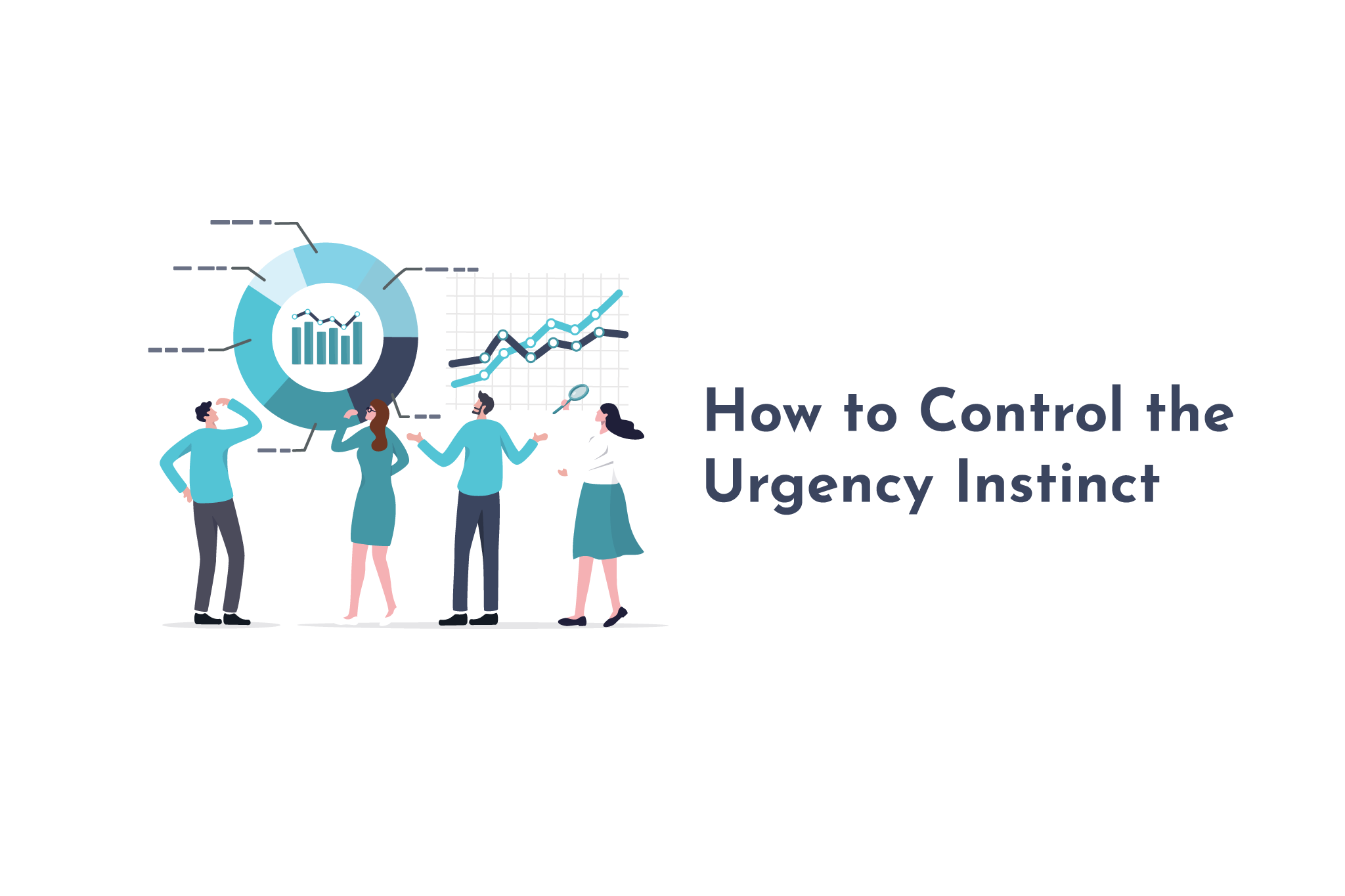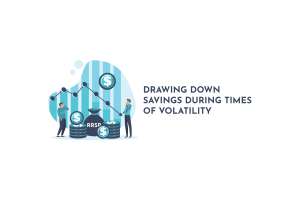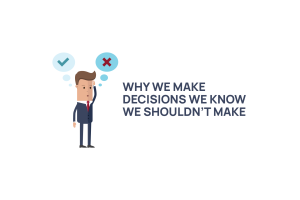As investors, you are constantly bombarded with news. I date myself with some of the commentaries that I make, but long gone are the days when someone went home and watched the evening news on the CBC to have Peter Mansbridge (or Knowlton Nash if you’re old enough) inform you on what happened through the day. When information was consumed in this way, there were certain advantages that no longer exist. One of the advantages of these bygone days was that by not knowing about things as they happened throughout the day, you often had more time to digest the news of the day before reacting to it. When you are presented with an ongoing feed of news throughout the day via your smartphone, whether you know its name or not, you are sometimes forced to deal with your urgency instinct. This is the idea that when you are faced with a problem, you need to react to it right away. Depending on the severity of the news, you can feel a great deal of stress that, in turn, can actually make it harder to make good decisions, and instead, you react based on instinct. If the stock market is dropping in value rapidly and you get news of this midday, your urgency instinct kicks in and wants you to make a change to your investments because you feel like you have to do something, and if you don’t do it now, it may be catastrophic. Let’s take a look at this idea in a bit more depth and see what we can do to help control our urgency instinct when it comes to investing.
In This Article:
- Understanding your Urgency Instinct
- Making Sound Investment Decisions
- How to Control Your Urgency Instinct
- Work with a Financial Advisor to Help
Understanding your Urgency Instinct
We are all faced with hundreds of decisions every day that we must make based on the information presented to us. Many of these decisions are easy to make, and we rarely even ‘think’ about them. There’s no real urgency to decide what you’re going to have for lunch today, so you don’t feel stressed, and as a result, the decision feels easier. When your urgency instinct kicks in, you are faced with making a decision where you feel that you are under pressure, and there is some fear based on not reacting fast enough and the potential outcomes swirling in your mind. We’ve all been there. I would suggest that there’s not a single person reading this who has never made a decision under pressure and who hasn’t looked back on it and thought that it was a mistake. When you feel pressured, your ability to think clearly and logically is overwhelmed by the urge to make quick decisions. This type of decision-making was a necessity of survival when it was the decision to turn and run from the wolverine you just encountered in the woods as an early settler, but when it clouds your judgement on investing decisions, it can have serious consequences.

Making Sound Investment Decisions
As financial advisors, one of the questions that we ask people during a risk assessment typically follows along the lines of ‘You’ve just received an investment statement, and it shows that the value of your investments has declined in the past six months. How much of a decline are you comfortable with?’ There are then multiple choice answers that indicate different ranges from no decline to upwards of 20%. The answers that we get to these types of questions often show that when it isn’t happening to them, an investor understands short-term losses are going to happen and that they feel comfortable with large declines. This is because, without the actual statement in their hands that shows a decline in value, everyone remembers that we are talking about investments that have volatility built in and that long-term returns are not what’s happened in the past six months. Rather, they are what has happened over a number of years. When that statement does arrive, though, the story often changes. When it was only theoretical, many people thought that a 10-20% decrease was something that they could live with easily. When they have the actual proof that it happened in their hands, the situation becomes different, though. The thought that ‘I am losing money’ rears up, and you feel the urgency to make a change simply because you need to do something. Otherwise, I could lose everything!
Here’s the thing. Many, many times, there have been large declines in the value of stock investments in very short periods of time. These get fun names from the press. ‘Black Monday’ in 1987 is a prime example. A single day when global equity markets lost a significant amount of their value. Remember, that name was created by the media after the fact; it helped sensationalize what happened. It’s not like the previous Friday when markets closed; investors were sitting around having a drink and planning what to do on ‘Black Monday.’ No, they were planning on business as usual on just a regular Monday. I am sure that when the next day, just a regularly named Tuesday, rolled around, there were many people who felt the urgency to make a change because they felt like they needed to do something; after all, the day before was Black Monday! That instinct that makes you feel like you have to do something can feel overwhelming when you are faced with the uncertainty that comes after a large, fast market correction.
How to Control Your Urgency Instinct
There are a few things that can help you control the feelings that come with your urgency instinct. Some of these include:
- Take a Breath – remember that most of the time, when you feel like you need to make a decision right now, this simply isn’t the case. Rarely does an important decision need to be made right now. Taking a breath allows your mind to calm down and reset, allowing your other instincts to kick in and lead to good decisions.
- Make Sure you are Informed – When you are faced with the idea of making a decision that you feel is urgent, this urgency often leads to you making that decision when you don’t have all of the data that you need to make an informed choice. Taking the time to make sure that the foundation upon which you make the decision is sound can save you from an error in judgment that you will need to fix later.
- Don’t try to Predict the Future – You cannot know what is going to happen in the future, so don’t let the urgency of a situation trick you into thinking that it will happen again and again. Just because something happened once doesn’t mean it will continue to happen. Basing any quick decisions on that type of logic will lead to poor choices.
- Don’t take Drastic Actions – your urgency instinct will overwhelm your common sense if you allow it to. You need to take a second and ask yourself what the additional effects of any decision you are making will be. If the side effects of the choice you make aren’t worth the decision itself, then you need to question the original choice.

Work with a Financial Advisor to Help
How does this all relate to financial plans? Remember earlier when I mentioned the idea that we do a risk tolerance exercise with clients? The answers that you provide to those questions, along with the discussions that you have with your financial advisor, will help them build an investment portfolio for you that matches your long-term goals with the most comfortable path for you to get there. When an advisor gets a panicked phone call from a client who has just received a statement that they are unhappy with, the question needs to be answered about how truthful you were when you answered questions originally. As long as you did that and had open, honest conversations with your advisor, they will, in all likelihood, recommend staying the course. In fact, they should recommend that to you. Your portfolio should be built on sound fundamentals that take into account weathering times of volatility. If your advisor moves forward with requests you are making while you are facing the stressful thoughts of ‘losing everything,’ your first move should be to begin interviewing new advisors, not making investment decisions. When it comes to the urgency instinct and making decisions when you are feeling very stressed, you need to remember one important thing. Remember that sometimes, the choice to do nothing is the right thing to do. Trust the process you followed to build your plan, and you will have a much better chance of reaching your long-term goals. If you feel like you need to talk to a financial advisor who can help you with your urgency instinct, reach out to us at 705-645-3229.




